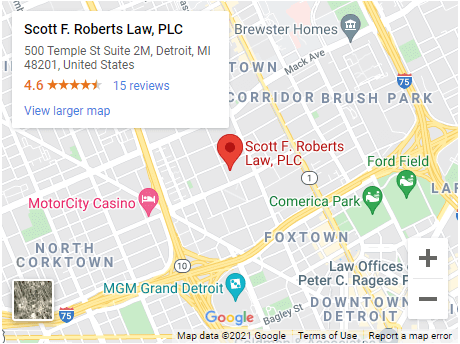Understanding what can be done with a commercial cannabis license under the Medical Marihuana Facilities Licensing Act (MMFLA) is crucial for those who are interested in becoming a part of Michigan’s cannabis industry.
There are five types of licenses under the MMFLA:
- Grower Licenses.
- Processor Licenses.
- Secure Transporter Licenses.
- Provisioning Center Licenses.
- Safety Compliance Facility Licenses.
For the most part, it’s pretty easy to guess what each license allows you to do. A grower license allows you to grow, a provisioning center allows you to sell, and a processors license allows you to process cannabis. However, what exactly constitutes “processing” and what that allows you to do is the subject of a lot of confusion. Here is a brief general overview of the privileges, responsibilities, and duties of a processors licensee.
What is a processor?
Under MMFLA, a processor is a commercial entity that is licensed to purchase marihuana from growers. Processors extract resin from the plant to create cannabis “concentrates” such as Cannabis oils and wax as well as create marihuana infused products for sale. Processed marijuana products are taking up an increasing share of the overall cannabis market, with such products representing approximately half of all marijuana sales in Colorado’s recreational market. For this reason, processors are an essential part of Michigan’s medical marihuana market.
There are many different types of cannabis compounds that can be processed. There are two compounds that are most common, those that are derived from tetrahydrocannabinol (THC) and those that are derived from Cannabidiol (CBD)
Though CBD and THC are both compounds of the same plant, CBD products are not psychoactive and are regulated somewhat differently. This means it does not alter the mind or get users “high”. Both THC and CBD have medical benefits that help treat disease, and both can come in the form of oils, pills, vaporization liquids and tinctures as well as edible products like coffee, gum, and candy. They also come in the form of specialty products like bath bombs, lip balm, and marihuana infused water. Processors have the ability to create a variety of products which in turn gives patients options in selecting the type of marihuana infused treatment that they would be most comfortable with.
Privileges
Licensed processors extract oils from plants that can be used to make a plethora of products, some of which are mentioned above. However, the only limit to the amount of products a processor can make is that processor’s imagination. You can make all types of edibles ranging from Marijuana-infused salad dressings to Marijuana-infused fudge or candy. This means that processors have the unique position of being at the center of innovation in the medical marihuana industry. Their function is essential to the growth of the market and processed products have the tendency to appeal to more casual marijuana users.
Unlike the amount limitations that the MMMA places on patients and caregivers, the quintessential privilege of having a processors license under MMFLA is that there are no limits on the amounts that can be processed in one facility. In other words, one facility could conceivably serve Michigan’s entire marijuana market. Unlimited processing is important because only licensed processors will be able to sell to dispensaries once the MMFLA fully goes into effect. Processing under the MMMA will still be allowed, but a caregiver will have no one to legally to sell other than the caregiver’s five patients.
Responsibilities and limitations
While there are many privileges associated with a processors license, those privileges do not come without responsibility. Processor licensees have the ability to buy marihuana and sell marihuana infused products. However, they can only buy from licensed growers and can only sell to other processors and provisioning centers, not to individuals directly.
The growers and processors that the licensee buys from or sells to must be located within the same facility as the licensee. Otherwise, processors would need to hire a secure transporter to pick-up and drop off product.
The processor also has the responsibility to enter all transfers into the statewide monitoring system known as METRC. Currently under the MMFLA, processors are required to have two years of experience as a caregiver, or have an employee with such experience. However, it is important to note that those holding processors licenses cannot be registered caregivers and may not employ registered caregivers. A new licensee or employee must essential forfeit their caregiver status within five business days from their date of hire, if an employee, or upon receipt of the license, if an owner. In addition to these regulations, processors also have to take steps to ensure that they are safely producing infused products.
While the number of products a processor can produce is only limited by their imagination, there are practical limits to the types of products, and more importantly, the processed product’s packaging. Regular, non-Cannabis infused products of this nature have packaging that is geared towards marketing to targeted audiences. For example, regular candy packaging is typically bright and flashy to appeal to children. Processors, in contrast, have a duty to make sure products are prepared with safe standards, and this duty also extends to packaging. Beyond allergen labels and shelf stability, the product’s shape, color, and outer packaging should be made in a way that cannot be easily confused with regular commercial candy or appeal to minors under the age of 17. This is a safety precaution to make sure that medical marihuana products do not get into the hands of a unknowing child. For this reason, all products must be equipped with child resistant packaging.
A processors duties extend beyond the outer packaging of infused products. Processors also have a responsibility to ensure that extraction processes are safe. Facilities that have exhaust systems are regulated by the National Fire Protection Association (“NFPA”). While there are different ways to extract compounds from plants, extractions that involve flammable gasses and liquids require processors to take extra precautions. The flammable gasses of different material can be used in multiple processes but must also meet the requirements of NFPA and the International Fuel Gas Code. In addition, processes that extract cannabis oil from marihuana plants using flammable liquids and gasses must have leak and gas detection equipment. This equipment must meet the standards of the Bureau of Fire Safety and sometimes this could require additional construction to ensure safety.
This is not an exhaustive list of the duties and limitations of a medical marihuana processor licensee. A full list can be found on the Department of Licensing and Regulatory Affairs (LARA) website. Processors licenses, like all Michigan medical marihuana licenses, are a privilege that can be revoked if the rules as outlined by the MMFLA and the Emergency Rules are not carefully followed. The best way to ensure compliance is to speak with a Michigan MMJ Attorney today.
Uduak Eyo is a law clerk for Scott F. Roberts Law, a boutique business and real estate law firm focusing on the medical marijuana and hemp industries.



